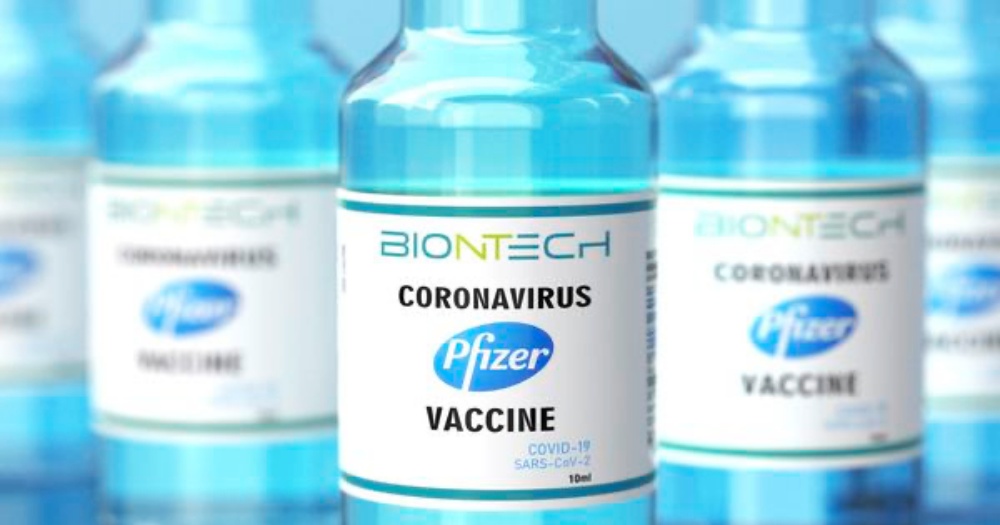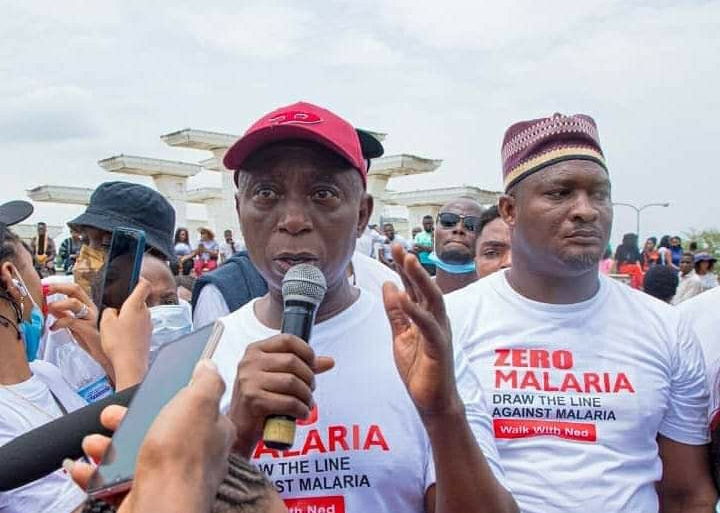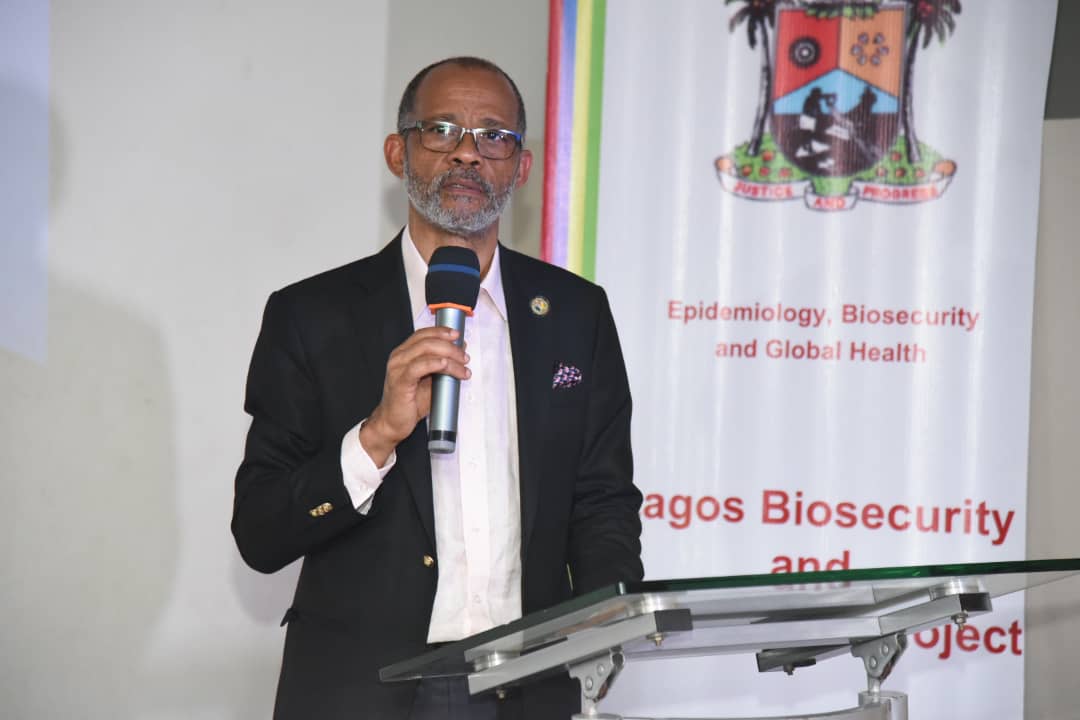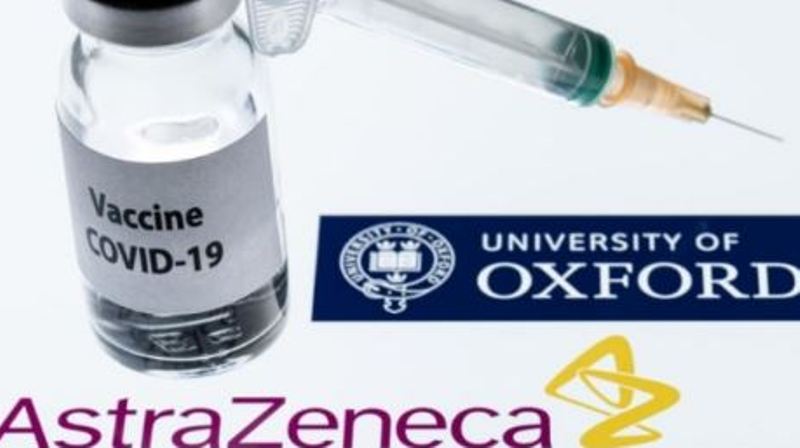So far, following the administration of the first dose of the Oxford-AstraZeneca Coronavirus disease (COVID-19) vaccine, few persons vaccinated experienced what is termed adverse events following immunisation (AEFI) or adverse event of special interest (AESI).
TheNewsGuru.com (TNG) reports the Lagos State Government made this known on Thursday in a statement by the State Commissioner for Health, Prof Akin Abayomi on the conclusion of the first half, phase one COVID-19 vaccination exercise.
The Commissioner for Health, while announcing a date to commence the second phase of COVID-19 vaccination, listed the adverse events or side effects of the COVID-19 vaccine as pain at the injection site, fever or body pains lasting 24 to 48 hours and anaphylactic shock.
“We are being extremely diligent for blood coagulation disorders in view of the prevailing international scientific attention to the possibility of increased risk of developing blood clotting disorders and two cases are being investigated.
“It is important in the interest of scientific knowledge to be able to attribute any blood clotting problems directly to the administration of the vaccine.
“The Lagos State Government has robust surveillance systems to effectively monitor and track untoward events and I would like to urge anyone who experiences any adverse events to call the number of the LGA Disease Surveillance Notification written in front of the vaccination card so that such cases can be thoroughly investigated and monitored.
“We have learnt several lessons during this vaccination drive, and the challenges encountered will be addressed before the commencement of the administration of the second doses vaccination drive,” Prof Abayomi stated.
He revealed that the second phase of COVID-19 vaccination will commence on the 28th of May 2021, and that the State had inoculated 257,756 persons as of the 15th of April 2021.
He also stated that the first phase, which took an average of 20 days, had ended and that the remaining doses of the Oxford-AstraZeneca COVID-19 vaccine have been reserved at the Lagos State Cold Chain Store for the second dose exercise.
The statement by Prof Abayomi reads in full: “Lagos State has concluded the first half of phase one #COVID19 vaccination campaign – in line with the directive of @NphcdaNG. The exercise began on March 12.
“The conclusion of the first phase, which took an average of 20 days, followed the Federal Government’s directive to stop vaccination once half of the consignment has been administered so that those who received the first dose will have an opportunity for the second dose.
“This will ensure that at least 1% of Lagos residents receive the full complement of doses required to enable the protection the vaccine promises. The target to achieve effective herd immunity is vaccination of at least 60% of the Lagos State population.
“The exercise lapsed on Tuesday 13th April 2021. Consequently, the Government has shut down all its vaccination centers.
“Recall that Lagos State got 507,000 doses of the 3.92 Million doses of the AstraZeneca COVID vaccine facilitated through support from the COVAX facility to the @NigeriaGov
“The Lagos State vaccination drive is managed by the Technical Working Group on the Vaccination Strategy as approved by the Governor, @jidesanwoolu, the Incident Commander. It is chaired by the Honorable Commissioner for Health @ProfAkinAbayomi.
“Lagos State inoculated 257,756 persons, as of the 15th of April 2021, consisting of health workers, frontline workers including; security agents, ports of entry staff, Judiciary, petrol station workers, contingency workers and strategic leaders.
“The Government went a step further to vaccinate willing pensioners, people aged 70 and above, teachers and journalists during the same period.
“Lagos is the only State that has inoculated more than 200,000 residents during this period.
“The remaining doses of the Oxford-AstraZeneca #COVID19 vaccine have been reserved at the Lagos State Cold Chain Store for the second dose exercise, which will commence on the 28th of May, 2021, following the expiration of the 8-12 weeks interval as required by the manufacturers.
“Residents are encouraged to check their vaccination cards for their next appointment dates and where possible to try to go to the same health facilities where they got their initial dose for their second dose.
“There is no need for citizens who have received the first dose to pre-register before going to the health facility for the second dose because their already captured details will only be updated with additional information after vaccination.
“The vaccines are due to expire on 9th July 2021. Our monitoring and evaluation quality assurance activity indicates that our cold chain distribution logistics has been maintained ensuring the integrity of the vaccines.
“As previously stipulated and according to the strategy of the Federal Government through the National Primary Healthcare Development Agency, the COVID-19 vaccinations will be in four phases.
“Phase two will cover persons aged 50 years and above as well as those living with co-morbidities who are between 18-49 years of age.
“Phase three will be activated thereafter for people in the Local Government Areas with the highest infections of the disease and those who missed phases one and two.
“Phase four will cover other eligible populations as more vaccines become available.
“The date of commencement of the Phase two vaccination will be announced by the Federal Government in due course.
“Of the 257,756 persons inoculated as of the 15th of April 2021, 59,444 (23.1%) are health workers, 109,809 (42.6%) are essential workers and 88,503 (34.3%) are strategic leaders.
“Our gender distribution data indicated that we have vaccinated more females than males; with 131,283 females representing 50.9% and 126,473 males representing 49.1% vaccinated as of April 15th, 2021.
“According to our evaluation report, Eti-Osa, Lagos Mainland, Ikeja, Kosofe, Alimosho and Surulere are the top six Local Government Areas with the highest number of persons vaccinated. 28,257 and 25,094 persons were vaccinated in Eti-Osa and Lagos Mainland.
“In Ikeja LGA, we vaccinated 23,194 persons; in Kosofe LGA, 19,398 people received the COVID vaccine. For Alimosho and Surulere, 18,954 and 14,963 persons were vaccinated.
“Apapa, Amuwo-Odofin, Badagry, Epe, and Ibeju-Lekki local governments have the least number of citizens vaccinated, with less than 8,000 persons vaccinated for each.
“So far, following the administration of the first dose of the vaccine to 257,756 persons, just a few of the persons vaccinated experienced what is termed adverse events following immunisation (AEFI) or adverse event of special interest (AESI) characterised by pain at the injection site, fever or body pains lasting 24 to 48 hours and anaphylactic shock.
“We are being extremely diligent for blood coagulation disorders in view of the prevailing international scientific attention to the possibility of increased risk of developing blood clotting disorders and two cases are being investigated.
“It is important in the interest of scientific knowledge to be able to attribute any blood clotting problems directly to the administration of the vaccine.
“The Lagos State Government has robust surveillance systems to effectively monitor and track untoward events and I would like to urge anyone who experiences any adverse events to call the number of the LGA Disease Surveillance Notification written in front of the vaccination card so that such cases can be thoroughly investigated and monitored.
“We have learnt several lessons during this vaccination drive, and the challenges encountered will be addressed before the commencement of the administration of the second doses vaccination drive.
“These includes: 1. The need to perfect the digital platform that would ensure scheduling of clients to prevent overcrowding at the facilities, which leads to opportunists taking advantage of chaos that may ensue.
“2. Continuous active risk communication to manage the expectation of the residents, educate them as to the need to properly monitor adverse events and report them through the official channels.
“We sincerely apologize to citizens that may have experienced any inconveniences during the first doses administration exercises. We pledge to try to manage the mammoth logistics more effectively moving forward.
“It is important to reiterate that residents, including vaccinated persons, must continue to adhere to the measures proposed to curb the spread of the virus, i.e. wearing of face masks in public, social distancing, avoidance of crowded areas, frequent washing of hands and practice of good respiratory hygiene.
“Lagos State is fully aware of the evolution and global circulation of #COVID19 virus mutant and variant strains that appear to be acquiring the ability to cause multiple waves characterized by more serious clinical outcomes in countries like India, Brazil and certain parts of Europe. Lagos State the consistent epicenter of Nigeria has come out of the second wave successfully, the government is not relaxing on its oars and is preparing assiduously for all eventualities.
“Mr. Governor is committed to achieve herd immunity for its population through the vaccination exercise and Lagos State will work with the @NphcdaNG and other potential stakeholders to ensure a successful #COVID19 vaccination campaign that would ensure Lagos State is able to withstand or mitigate a 3rd wave.
“In line with the Federal Government’s strategy of curbing the spread of the global pandemic and securing public health, Lagos State Government through its Technical Working Group on the Vaccination Strategy and @LagosPHCB carried out the vaccination of its residents under the supervision and strict protocols of the @NphcdaNG.
“My profound appreciation goes to Mr. Governor @jidesanwoolu for his leadership role in this successful exercise.
“I would also like to extend the @followlasg appreciation to our development partners for their support and technical assistance, and the Gentlemen of the Press for their roles in the exercise”.




